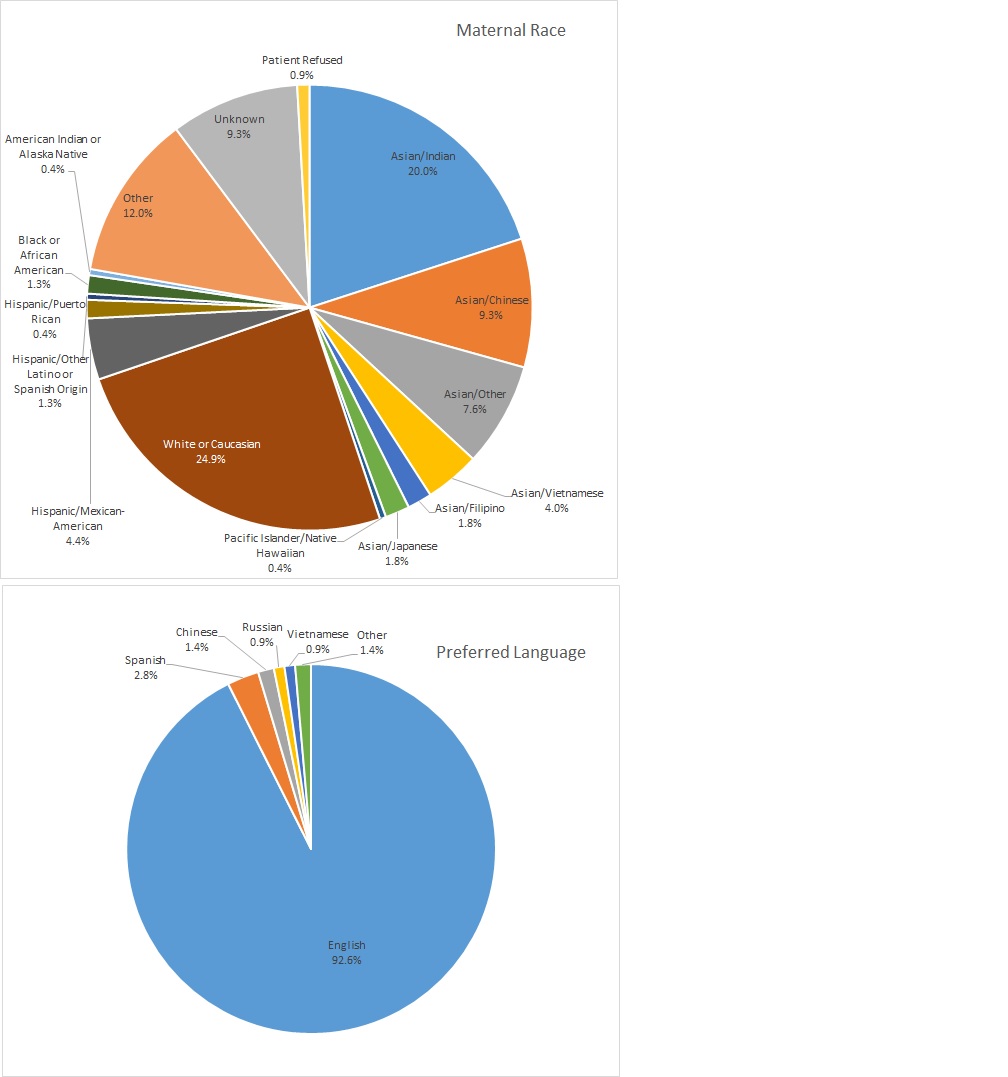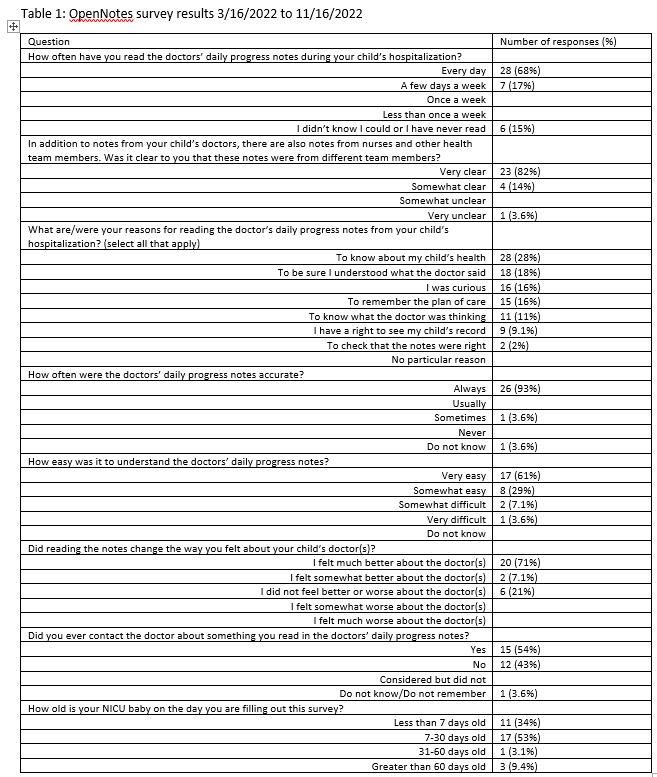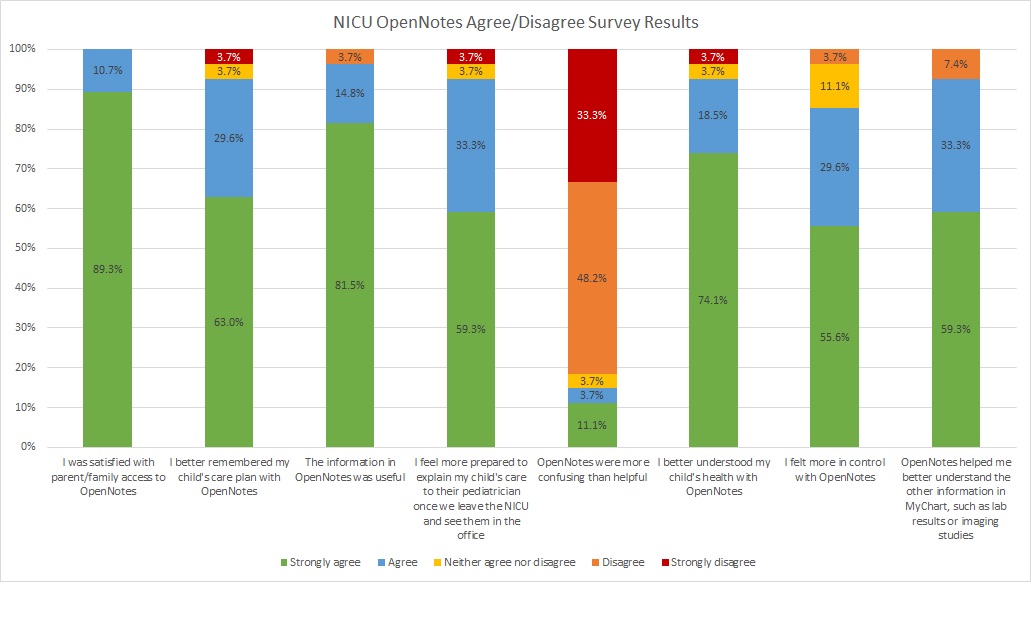Telemedicine/EHR/Medical Informatics
Telemedicine/EHR/Medical Informatics 1
733 - Family Perception of NICU OpenNotes
Publication Number: 733.154

Katherine (Kari) McCallie, MD (she/her/hers)
Clinical Associate Professor
Stanford University School of Medicine
Menlo Park, California, United States
Presenting Author(s)
Background:
The 21st Century Cures Act has mandated sharing of clinical notes electronically to patients. OpenNotes, or sharing of medical notes via a patient portal, has been studied extensively in the adult population, but less in pediatric populations, and not at all in the Neonatal Intensive Care Unit (NICU).
Objective: This study aims to understand parents’ interaction with and perception of the NICU physicians’ daily progress notes shared with them via the hospital’s patient portal (Epic MyChart) using a survey of NICU parents at a community level 3 NICU.
Design/Methods:
All NICU patients are assigned Discharge Education on admission in English or Spanish by preferred language, and families complete this in the patient portal prior to discharge. At the end of the NICU Discharge Education in MyChart, parents were offered the opportunity to take a voluntary, anonymous survey on OpenNotes, with a link at the bottom of the page to a Qualtrics survey in English or Spanish. The survey is an adaptation of the same survey used in numerous OpenNotes studies, including prior studies in outpatient and inpatient pediatrics.
Results: Out of 216 NICU patients from 3/16-11/16/2022, there were 41 respondents to the survey (19%). NICU patients were primarily term infants (51%) with birth weight > 2501 g (57%). Maternal race was primarily Asian (43%) and English was the most common preferred language (93%) [Figure 1]. Families most frequently read the doctors’ daily progress notes “every day” (68%). They indicated the doctors’ notes were primarily “always accurate” (93%) and “very or somewhat easy to understand” (90%). All of the respondents felt the same or better about the doctor(s) after reading the notes, and 54% contacted the physicians about something in the notes [Table 1]. Four respondents (15%) felt that OpenNotes were more confusing than helpful, and two (7.4%) disagreed that OpenNotes helped them better understand other information in the patient portal, e.g. lab results or imaging studies [Figure 2]. Free text responses indicated satisfaction with NICU OpenNotes: “Helped reinforce the verbal explanations of progress. Great memory aid when tired.” But there were also suggestions for improvement: “It can be very jargon-y.”
Conclusion(s): To the authors’ knowledge, this is the first study to document families’ perceptions of OpenNotes in the NICU. Though limited by low survey response rate, NICU families overwhelmingly indicated positive interactions with the doctors’ daily progress notes. Their responses give important insights into how to improve patient information shared via the patient portal and via OpenNotes.


